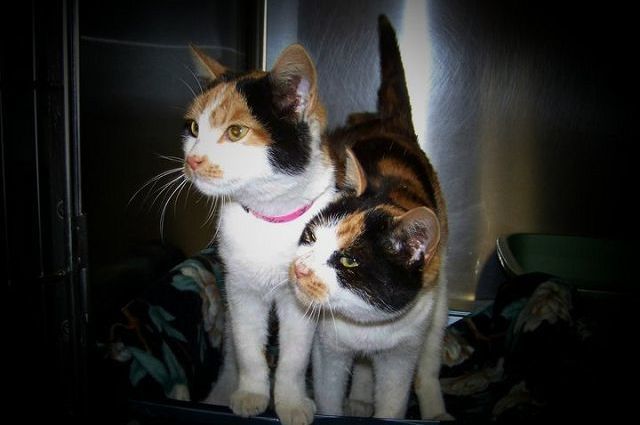Cat overpopulation must be addressed
The month of June is recognized as Adopt-a-Shelter-Cat Month. The Tuscarawas County Humane Society (TCHS) and their sister organization, Cats N Us (CNU), a shelter specific to cats and kittens, need all the promotion they can get. Both shelters have reached full capacity and are unable to accept cats or kittens at this time.
Cat overpopulation is an issue than plagues communities all over the nation. The TCHS Abuse and Neglect Hotline, shelter and CNU receive inquiries daily from area residents with cats and kittens that they have found, seen or cant care for.
Currently both shelters have a waiting list to surrender cats and kittens. Both shelters have a square footage that can only contain so many cats at a healthy level.
The TCHS has a waiting list for kittens and CNU has a waiting list for cats, said Rhonda Rosenberry, vice president at TCHS.
Its kitten season and its very apparent. I cannot stress how important it is to spay and neuter your cats. A pair of breeding cats, which can have two or more litters per year, can exponentially produce 420,000 offspring over a seven-year period. Tuscarawas County has feral cats everywhere, which is becoming quite an epidemic. Feral cats are the wild offspring of domestic cats and are primarily the result of pet owners abandonment or failure to spay and neuter their animals, allowing them to breed uncontrolled. Feral cat colonies can be found behind shopping areas or businesses, in alleys, parks, abandoned buildings, and rural areas. They are elusive and do not trust humans, said Rosenberry.
It is impossible to know how many stray cats live in the region. The American Society for the Prevention of Cruelty to Animals (ASPCA) estimates more than 70 million stray cats are living in the nation. Nationwide, seven out of 10 cats are destroyed simply because there is no one to adopt them. It costs less to spay or neuter a cat than it does to care for one for an entire year.
Both TCHS and CNU are no kill shelters, but when they are at capacity they cannot accept animals.
Many cats in the region are being abandoned. Many people assume their cats will survive when they move away and leave them behind. Domestic animals do not automatically return to their natural instincts and cannot fend for themselves, said Rosenberry. The cats are then forced to survive, dealing with starvation, disease, abuse and predators, not to mention the problems the cities and neighbors are forced to deal with.
The TCHS is the only organization in the county with a court appointed humane officer. Steve Bush handles calls for the entire county, said Rosenberry. He receives anywhere from 60-100 calls a month of abuse and neglectful situations. He checks on every call. We do not have the manpower or resources to handle this feral, stray cat issue in our county. There are no laws pertaining to cats, no licenses, no laws on how many one person can own, and no leash laws, which also adds to the problem in our area. With that comes no real action to take, no fines, nothing legally he can do to stop this situation that continues to get worse every year.
Only 13 states and the District of Columbia have any laws that even mention feral cats (California, Connecticut, Delaware, Illinois, Indiana, Kentucky, Maine, Nebraska, New York, Rhode Island, Texas, Virginia, and Vermont). Generally, the state laws that do address these issues simply define feral cats and enable local governments to adopt their own solutions.
TCHS and CNU would like to see local legislation adopted to address the issue of feral cats. The county commissioners need to get involved and help out with this. This is not solely the responsibility for TCHS and CNU and yet members of the community think it, said Rosenberry. Our two nonprofit groups with only volunteers just cant make a dent in this problem.
Tuscarawas County Commissioner Kerry Metzger said, People need to be aware that the county commissioners have no authority to do anything. We conform to Ohio Revised Code and currently that only covers dogs.
As of June 3, there were 65 people waiting to surrender kittens to TCHS and 55 people waiting to surrender cats at CNU.

